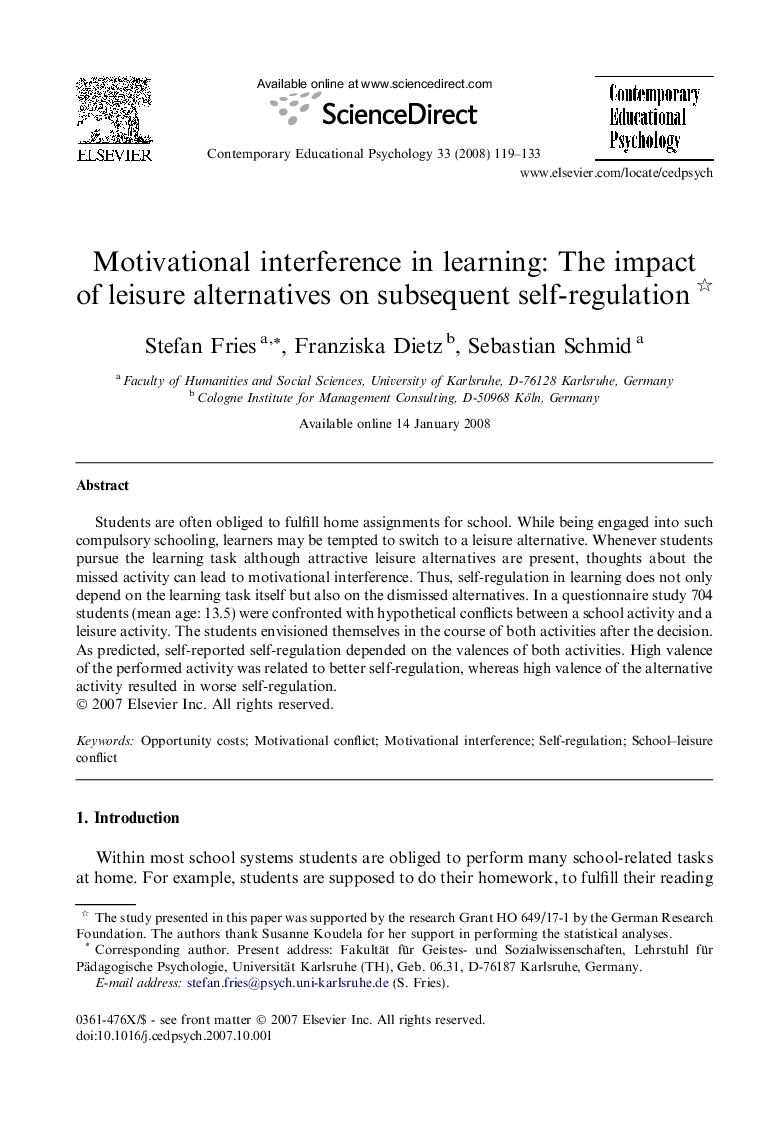| Article ID | Journal | Published Year | Pages | File Type |
|---|---|---|---|---|
| 352875 | Contemporary Educational Psychology | 2008 | 15 Pages |
Students are often obliged to fulfill home assignments for school. While being engaged into such compulsory schooling, learners may be tempted to switch to a leisure alternative. Whenever students pursue the learning task although attractive leisure alternatives are present, thoughts about the missed activity can lead to motivational interference. Thus, self-regulation in learning does not only depend on the learning task itself but also on the dismissed alternatives. In a questionnaire study 704 students (mean age: 13.5) were confronted with hypothetical conflicts between a school activity and a leisure activity. The students envisioned themselves in the course of both activities after the decision. As predicted, self-reported self-regulation depended on the valences of both activities. High valence of the performed activity was related to better self-regulation, whereas high valence of the alternative activity resulted in worse self-regulation.
